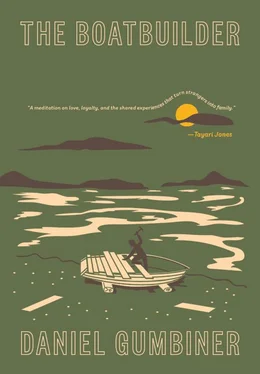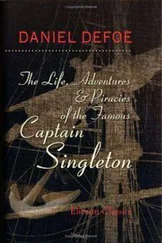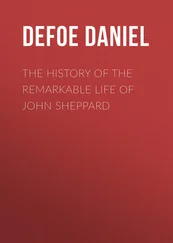“I understand that you’re mad at me,” he said. “You have every right.”
“I’m just really sad, Berg,” she said. “It’s just… it’s sad. And it’s scary. I’m scared for you.”
The first day back in the shop he could barely look at Alejandro and Uffa. He kept his head down, cut blocks for the rigging and then soaked them in warm linseed oil in Alejandro’s old white Crock-Pot. Uffa asked him if he wanted to go out on the Contos after work but he said no. He went straight to his bed in the cubby and read a novel.
The following day he did the same thing: cut blocks and soaked them in linseed oil. He ate lunch alone, down by the water, and thought about the hospital, about the way he had screamed at the doctor. He had no appetite but he forced himself to finish his lunch. Leftover chicken from last night’s dinner and a small salad. It tasted like nothing.
When the day was over, Alejandro told Berg to follow him outside.
“Come on,” he said. “We’re going for a walk.”
“I don’t want to meditate,” Berg said.
“We’re not going to meditate. We’re just going for a walk.”
Berg set down his chisel and followed him out of the shop. They walked along the path, down toward Mimi’s. Miner’s lettuce along the trail and wrens in the branches. Alejandro turned right and headed into the forest. The sun was setting, the cool evening coming, with its mosquitoes and hysterical coyotes. They walked in silence, rustling through the forest. At one point Berg almost stepped on a banana slug. It was the size of a highlighter, oozing with yellow-green slug slime. Then Alejandro spoke.
“When Szerbiak died it devastated me,” he said. “He was my brother. I hated him for dying. I hated him. For a long time I couldn’t look at his death at all. I threw myself into my work, you see? The farm, the boats.” He sighed. “I looked away. But I know I need to sit with it. Just like I’ve had to sit with all the hardest things in my life. You see, no one taught me about that. No one taught me to look at the darkness, to sit with it. But you’ve got to go into it. If there’s one thing I’ve learned, it’s that you’ve got to go into it. That doesn’t mean you sanction it. That doesn’t mean you say you like it. It just means that you look at it, that you acknowledge that it’s there—because it already is.”
He stopped walking and turned around to face Berg.
“Soon you’re going to be old like me—”
“Ale…”
“No, no, let me wax poetical for a second. Have I ever waxed poetical at you?”
“Yes.”
“Okay, well let me do it again. Soon you’re going to be old like me and I guarantee you, the one thing I don’t ever wish is that I’d worried more. Not one day do I wake up and say, ‘Gee, I wish I’d spent more time being afraid.’ No, I just wish I’d looked at things head-on. Because anxiety needs the future. If you’re looking at the thing itself it’s very unlikely you’ll be anxious.”
“But what if the thing itself is ugly?”
“Well, then it’s ugly. But the suffering happens when you try to make it not ugly when it’s ugly. I’m not saying it’s easy. I fail at it all the time. But it’s the only way.”
They walked past several tan oaks and pepperwoods, into the shade of a few Douglas firs. The fir needles were soft under their feet, the light fading now.
“Should we turn around?” Berg asked.
“Sure, let’s turn around.”
They said nothing on the walk home, just watched the forest, listened to its evening murmurings. When they got back to the house Alejandro embraced Berg in front of the shop.
“There’s more right with you than wrong with you,” he said. “Remember that.” And then he turned and hobbled off toward his house.
Berg climbed the ladder to the lofting floor and crawled into the cubby. Through the small square window he watched the stars come out over the bay. He leaned back in his bed. He hadn’t eaten dinner, he realized. It didn’t matter. He wasn’t hungry.
PAT WAS CONVICTED THAT winter. Eighty-two months in custody for smuggling eleven thousand pounds of pot into California. “We aren’t going to let our oceans become a freeway for drug traffickers,” the prosecuting attorney said in the news. “Smugglers might think the vast Pacific is a good place to be invisible, but these defendants know otherwise.”
“It’s an outrage,” Alejandro said to Berg, after reading the article. “You’ve got corporations polluting our rivers and mountains and air with impunity. You’ve got hedge fund managers manipulating the global economy. The stock market is just pure thought—you know that, right? When we run out of thoughts it will cease to exist. Those guys are scamming everyone and Pat, who’s doing something that harms no one, who’s delivering medicine—and delivering it without using any fossil fuels, I might add—he’s the guy who goes to prison.”
That same winter, Nell went on tour with Carlos Carlos de Carlos again. Berg wrote her letters almost every week, simple notes about his day-to-day, about life in the shop. He’d aim the letter toward whatever city they were visiting next, but he was never sure if they’d make it.
Sometimes, the shame of his lies, of his exposure, of his OD, would be so strong that his chest would hurt. He’d write Nell a long letter about how worthless he was and how much he’d fucked up, and then he’d crumple that letter up and throw it out. She didn’t need his self-pity. She needed him to show up, to maintain some kind of consistent, base-level integrity.
The headaches were still there. He knew they would be. They came on an almost daily basis, and when they did, if he could summon the courage to do so, he welcomed them. He tried to watch them, moment by moment, to observe their texture and sensation, to avoid pushing them away.
Berg was not the only one having a difficult time that winter. Uffa was experiencing his own tailspin. Demeter had purchased a ticket to New York and, in less than a month, she would be moving across the country. When Uffa first heard the news, he spent a week alone in his room, recording an elegiac freestyle rap album. Later, he adopted a gray stray cat and named him Grayman.
“I think he dips his giant mouth scoop into multiple food bowls around town,” Uffa said. “But he likes to sleep on the bus now.”
With Celia’s boat almost finished, Alejandro had turned once again to his three-pronged plan to generate extra revenue. He spent all day at the docks, puttering around and experimenting with his first 3-D ocean-farming structures. He had built several different kinds and he wanted to test their efficacy over time.
Meanwhile, in the shop, Berg was attempting to build his first twenty-four-hour canoe. It was taking him a lot longer than twenty-four hours, but this morning, after a week of work, he was finally ready to fasten the first plank. He looked around the shop for the specialized jig Alejandro had made to rivet the canoes, but he couldn’t find it.
As he walked down to the docks he could hear the creaking of pilings, the jabber of gulls. When he got to the water, he found Alejandro on the ground, examining kelp.
“It probably makes most sense to dry out this kelp,” Alejandro said, looking up at Berg. “That way we can sprinkle it over our crops as a fertilizer. It would close the nitrogen loop, you know? The kelp would sop up the nitrogen and then we’d use it to grow our vegetables and then it would make its way back into the bay. The issue is the smell. It has an unfortunate odor. Rebecca hates it. Maybe I could mix it in a solution with something else to minimize the odor? Or maybe I should just scrap the whole fertilizer idea and sell the seaweed to high-end restaurants? That would probably make us the most money anyway.”
Читать дальше












